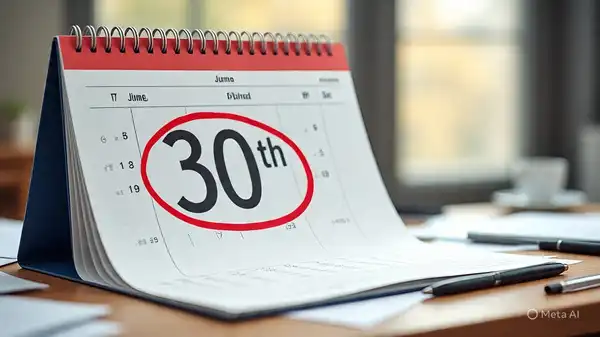
SPEAKING — Success and Failure
-
Shadi
- Speaking
IELTS Speaking Test
- Speaking Part 1 – Everyday Topics
- Speaking Part 2 – Cue Card
- Speaking Part 3 – Discussion & Opinion
Part 1 :
✍️ How to Handle IELTS Speaking Part 1
1. Overall Strategy
Use this 3-step strategy for each answer:
Step 1 : Direct Answer
- Answer the question clearly right away
Step 2 : Support / Example
- Add a short explanation or example to show depth.
Step 3 : Extra detail / Comparison
- If time allows, add a comment, contrast, or small opinion.
2. Tips for Natural Fluency
- Use fillers naturally: “Well…”, “To be honest…”, “Actually…”
- Don’t speak too formally — it should sound like a friendly conversation.
- Add small opinions: “I guess that’s because…”, “That’s just how I am…”
- Show change over time: “I used to… but now…”
Suggested Phrases & Answer Structure – Part 1 , Topics 1 to 3
Topic 1 : Do you work or are you a student?
💠 If you work:
- I’ve been working in [field] for the past [x] years
- challenging but rewarding
- remotely / on-site / in a hybrid setup/full time/ part time
- I am looking to grow professionally
💠 If you’re a student:
- I’m an avid reader.
- Reading is my escape from daily life.
- It’s a great way to unwind after a long day.
- I wouldn’t say I’m obsessed with it, but I do enjoy a good book now and then.
- It depends on my mood, but overall, yes.
Topic 2 : Let’s talk about Reading
- Do you enjoy reading?
- What kind of books do you usually read?
- Do you prefer printed books or e-books?
- Did you read a lot when you were a child?
💠 Do you enjoy reading?
- I’m an avid reader.
- Reading is my escape from daily life.
- It’s a great way to unwind after a long day.
- I wouldn’t say I’m obsessed with it, but I do enjoy a good book now and then.
- It depends on my mood, but overall, yes.
💠 What kind of books do you usually read?
- I gravitate towards…
- I’ve got a soft spot for…
- I mostly stick to… but occasionally venture into…
- I enjoy anything that makes me think or feel deeply.
- It varies, but I tend to prefer…
💠 Do you prefer printed books or e-books?
- Nothing beats the feel of a real book.
- I like the convenience of e-books, but…
- I’m old-school when it comes to reading.
- Printed books are easier on the eyes, in my opinion.
- E-books are great for travel, but I still prefer physical copies.
💠 Did you read a lot when you were a child?
- I was a total bookworm as a kid.
- I used to devour books one after another.
- My parents always encouraged me to read.
- I wasn’t a huge reader back then, to be honest.
- I spent hours at the library every weekend.
Topic 3 : Let’s talk about Housework and Chores
- Do you help with chores around the house?
- Is there any chore you really dislike?
- Did you do any housework when you were a child?
- In your country, who usually does the housework?
💠 General Phrases:
- “I try to pull my weight at home…”
- “We divide the chores pretty evenly in my family.”
- “I do my fair share of housework.”
- “To be honest, I’m not a huge fan of chores, but I do them anyway.”
💠 Talking About a Disliked Chore:
- “Doing the dishes is a real drag for me.”
- “I can’t stand cleaning the bathroom — it’s just gross.”
- “Ironing clothes is probably the most tedious task in my opinion.”
💠 Talking About Childhood:
- “When I was a kid, I had to make my bed and tidy up my toys every day.”
- “My parents made sure I learned how to do basic chores from an early age.”
- “Back then, I didn’t appreciate it, but now I’m glad I learned those skills.”
- E-books are great for travel, but I still prefer physical copies.
💠 Cultural References:
- “In my culture, it’s often the women who take care of most of the household duties, although that’s slowly changing.”
- “Traditionally, housework was seen as a woman’s responsibility, but nowadays, more men are getting involved.”
- “These days, a lot of couples share the workload, especially if both of them are working full-time.”
Part 2 :
 How to Handle IELTS Speaking Part 2: Cue Card
How to Handle IELTS Speaking Part 2: Cue Card
1. Understand the Cue Card Quickly
- Focus on the bullet points – they guide your response. Try to cover all.
2. Use the 1 Minute Wisely
- Write keywords, not full sentences. Prepare 1–2 ideas or examples.
- Think of beginning → middle → end like telling a mini-story.
3. While Speaking
- Speak until the examiner stops you — aim for at least 100 seconds.
- It’s OK to pause briefly or self-correct — just keep going.
- Don’t memorize full answers; instead, use flexible phrases and build your response naturally.
4. Extra Advice for Band 7+
- Use a mix of past and present tenses (past for the story, present for your reflection).
- Add a personal touch — make it sound like a real experience, not generic.
- Include emotion and reflection: “I felt ——-
- Use natural transitions: Honestly…, To be fair…, At that point…, Eventually…
Starting Phrases and Model Answer for Speaking Part 2 (Cue Card)
1 minute to prepare and take notes
2 minutes to speak
Describe a time when you failed at something.
You should say:
- What it was
- Why you failed
- What you learned from it
- And what you would do differently next time
Ways to start
- “I vividly remember a time I failed at…”
- “Something I totally messed up was…” (informal, but natural)
- “Looking back, one major setback I faced was…”
- “I once found myself in a situation where things didn’t go as planned…”
- One failure that really sticks with me…
Model Answer
You can tweak it with your personalized answers and make any changes necessary.
💠 1.What it was
✅ One failure that really sticks with me was when I tried to launch a small online business during university. I was passionate about handmade crafts and decided to sell them on Etsy. I spent weeks designing the products, setting up the shop, and even learning basic photography to take decent pictures.
💠 2. Why you failed
✅ However, the business never took off. I barely got any sales, and after a few months, I gave up. Looking back, I now realize that I focused too much on creating things I liked, without doing proper market research. I also didn’t invest enough time in promoting my shop or learning how SEO works.
💠 3. What you learned from it
✅ It was disappointing, but I learned so much from the experience — especially about the importance of understanding your audience. If I were to do it again, I’d definitely talk to potential customers first, research the market, and create a marketing plan before launching anything.
💠 4. What you would do differently next time
✅ Honestly, even though it was a failure, it pushed me to think more like an entrepreneur and less like a hobbyist — and that shift has helped me in so many ways since then.
Part 3 :
✍️ How to Handle IELTS Speaking Part 3: Opinion-Based Discussion
1. Overall Strategy
- In Part 3, you will be asked opinion-based questions.
- Listen carefully and identify the focus.Is it about causes, effects, comparisons, or opinions?
- Explain your reasoning and extend with examples or comparisons
- Remember that in Part 3, you shouldn’t talk about your personal life; focus on people in general and broader social trends.
Sample Ideas and Model Answer for Part 3 Discussion Questions
- Do you think failure is necessary for success? Why or why not?
- How should parents and teachers help children deal with failure?
- Is the fear of failure stronger today than in the past?
- Can failure ever be more useful than success?
- In your country, how do people usually respond to failure
💠 1. Do you think failure is necessary for success? Why or why not?
- Failure helps people learn from mistakes.
- Builds resilience and character.
- Teaches important life lessons that success cannot
- Failure is often the stepping stone to success.
- It allows us to reflect, reassess, and improve.
Model Answer:
✅ Absolutely — I think failure is often the stepping stone to success. It helps people learn from mistakes and teaches life lessons that success alone cannot. When we fail, we’re given a chance to reflect, reassess our approach, and improve. This process builds resilience and character over time. In fact, I believe success without failure is rarely meaningful, because it’s the setbacks that shape our growth and determination.
💠 2. How should parents and teachers help children deal with failure?
- Encourage a growth mindset.
- Avoid punishing failure – focus on effort and learning.
- Share their own experiences with setbacks.
- Children need to feel safe to fail without being judged.
- It’s important to normalize failure as part of growth.
- They should highlight effort, not just outcomes.
💠 3. Is the fear of failure stronger today than in the past?
- Possibly stronger due to social media pressure and high competition.
- Fear of judgment and comparison is more common now.
- Past generations were more tolerant of trial and error.
- With today’s culture of perfection, fear of failure has intensified.
- People are constantly comparing themselves to others online.
- There’s more pressure to succeed quickly nowadays.
💠 4. Can failure ever be more useful than success?
- Yes, because success may not teach anything.
- Failure often pushes people to improve, try new strategies.
- Many famous people failed before succeeding.
- Sometimes failure leaves a deeper impression than success.
- It forces us to think critically and adapt.
- Success can be misleading if it comes too easily.
💠 5. In your country, how do people usually respond to failure?
- It varies by culture and individual.
- In some areas, failure is seen as shameful.
- Others embrace it as part of learning.
- In many cases, people are afraid to talk about their failures.
- There’s a cultural tendency to hide or minimize failure.
- Thankfully, younger generations are starting to see it differently.
Ready for the Next Step?

 How to Handle IELTS Speaking Part 2: Cue Card
How to Handle IELTS Speaking Part 2: Cue Card
